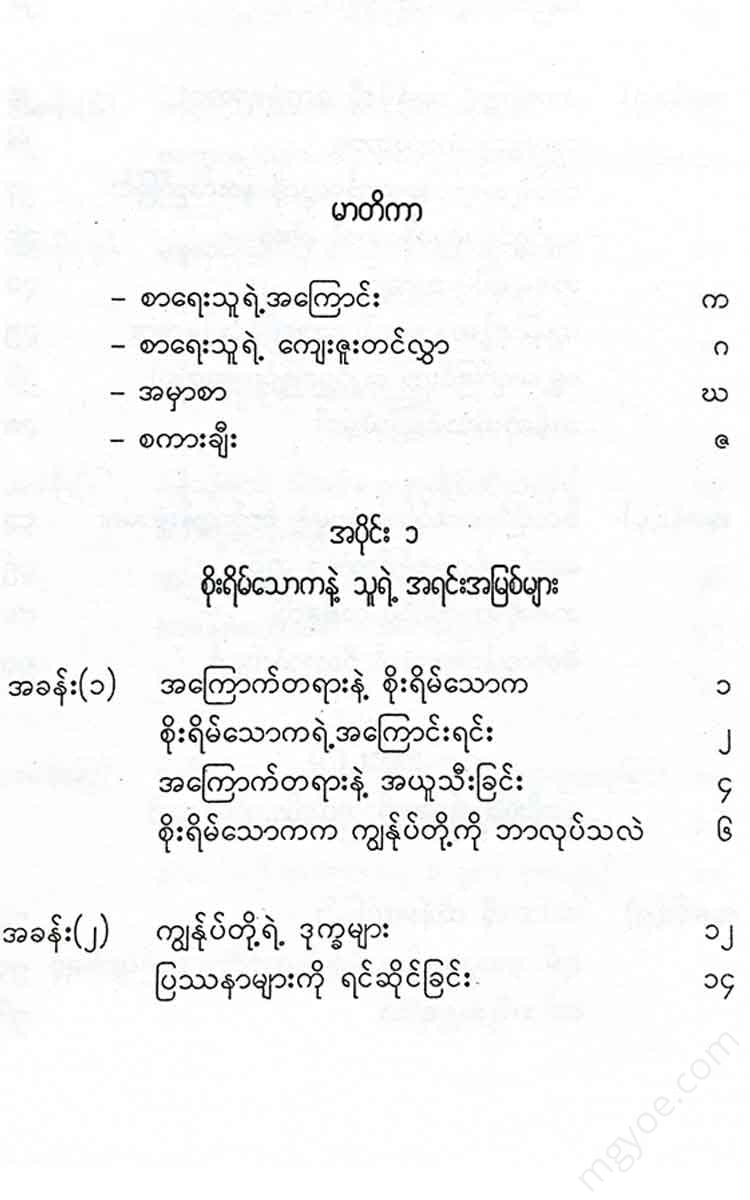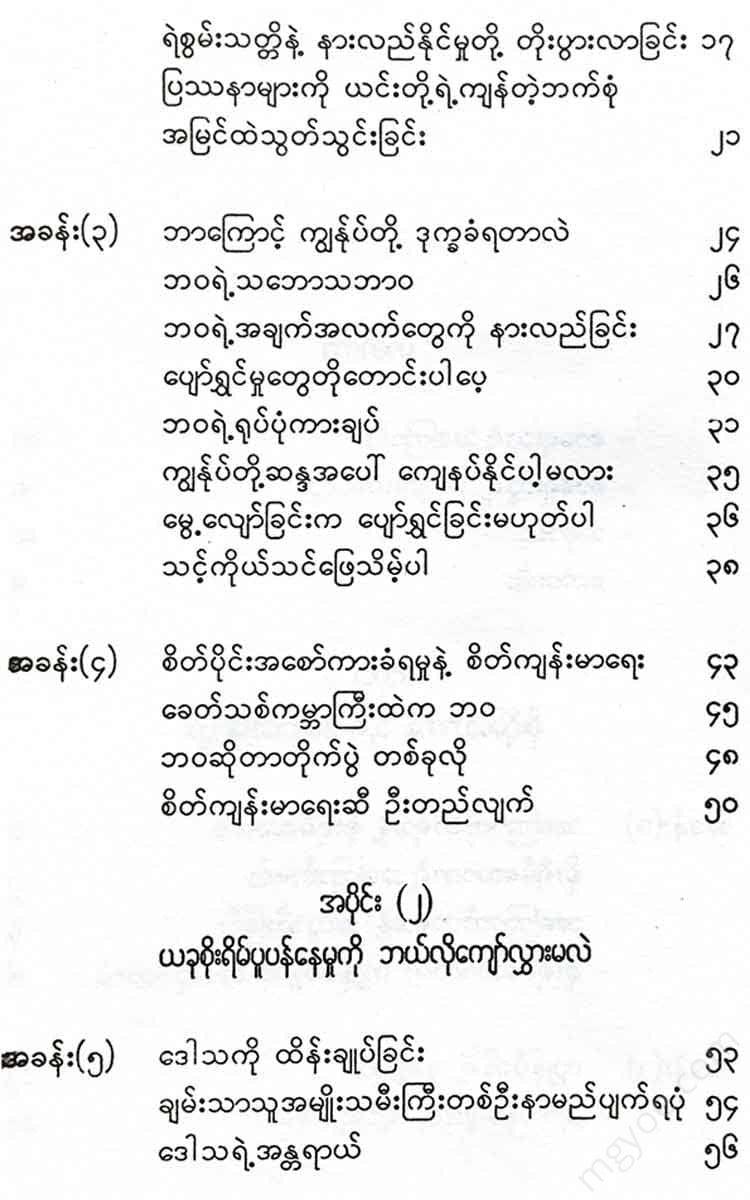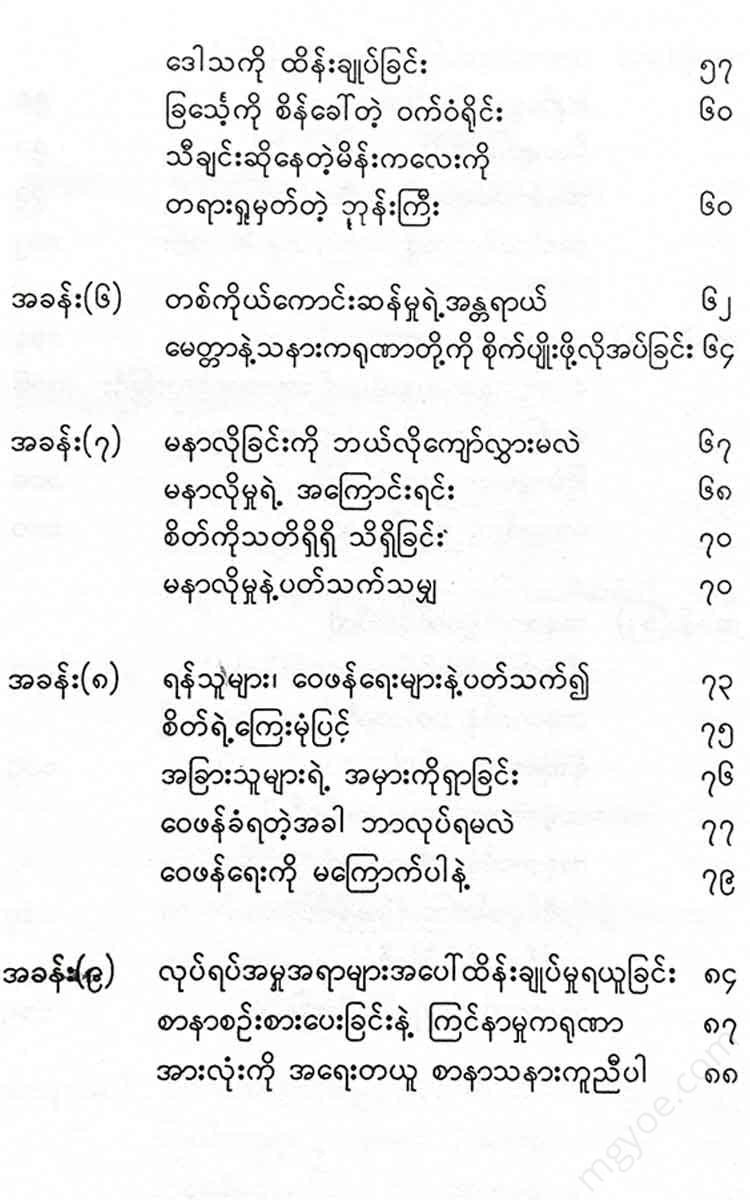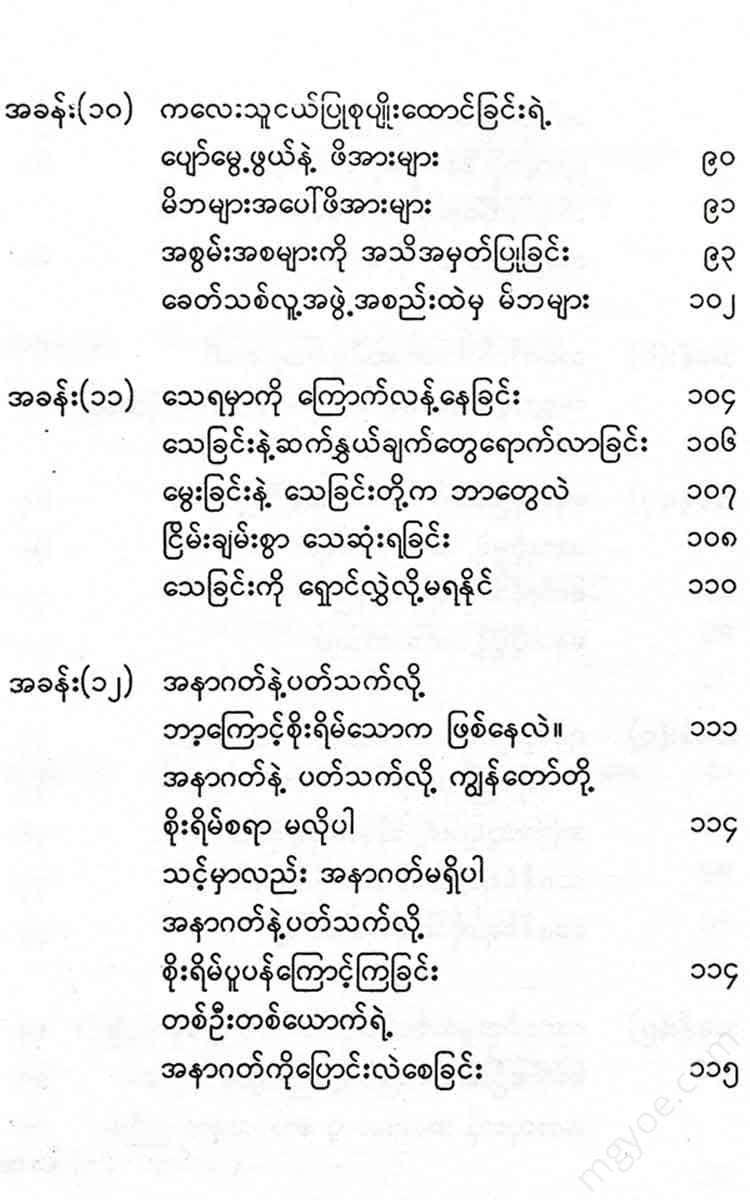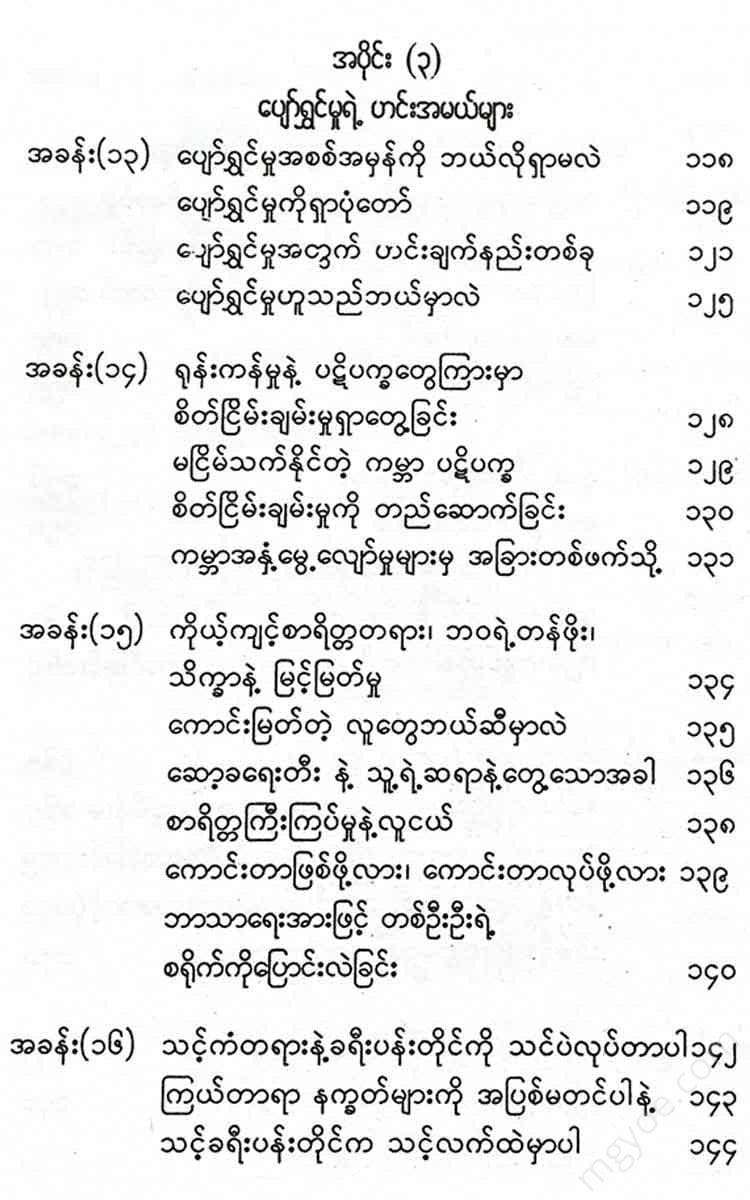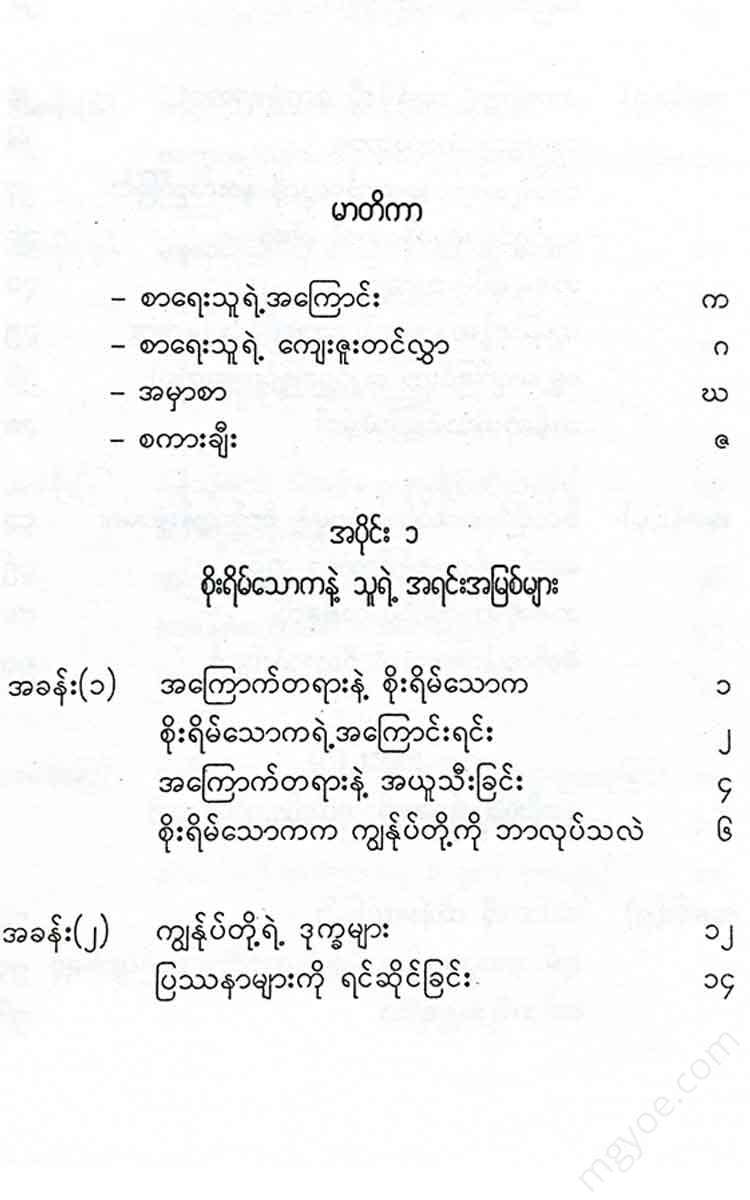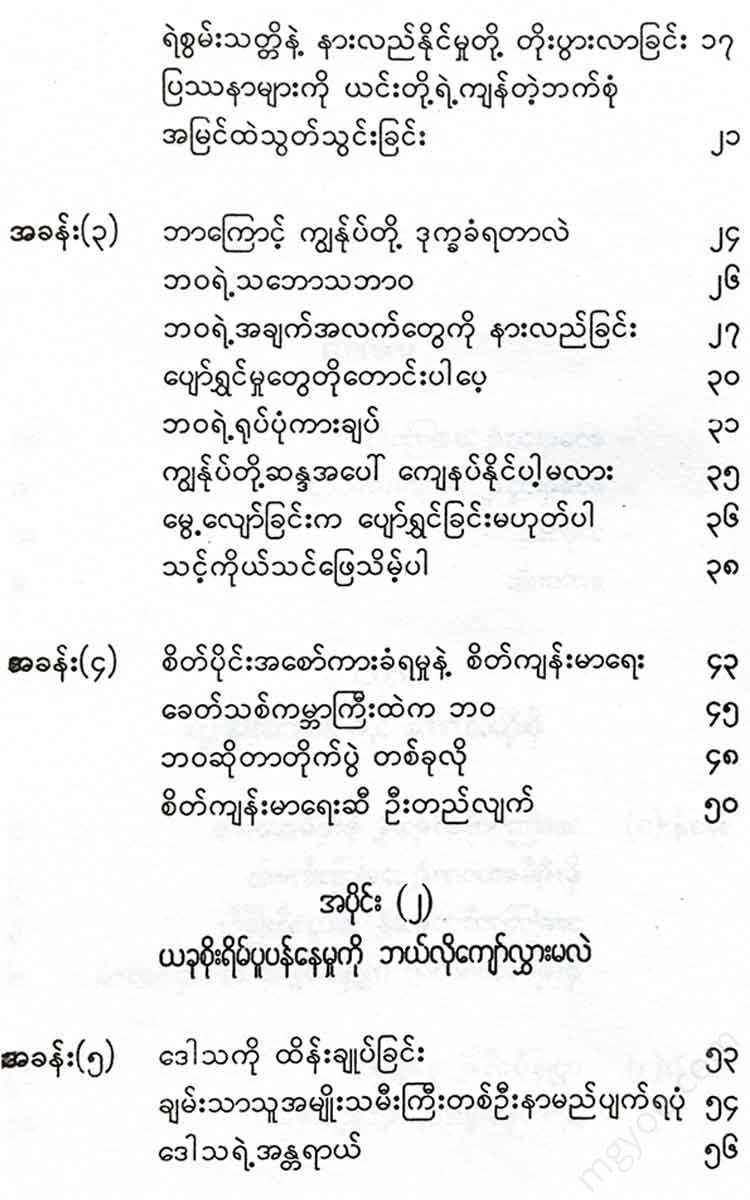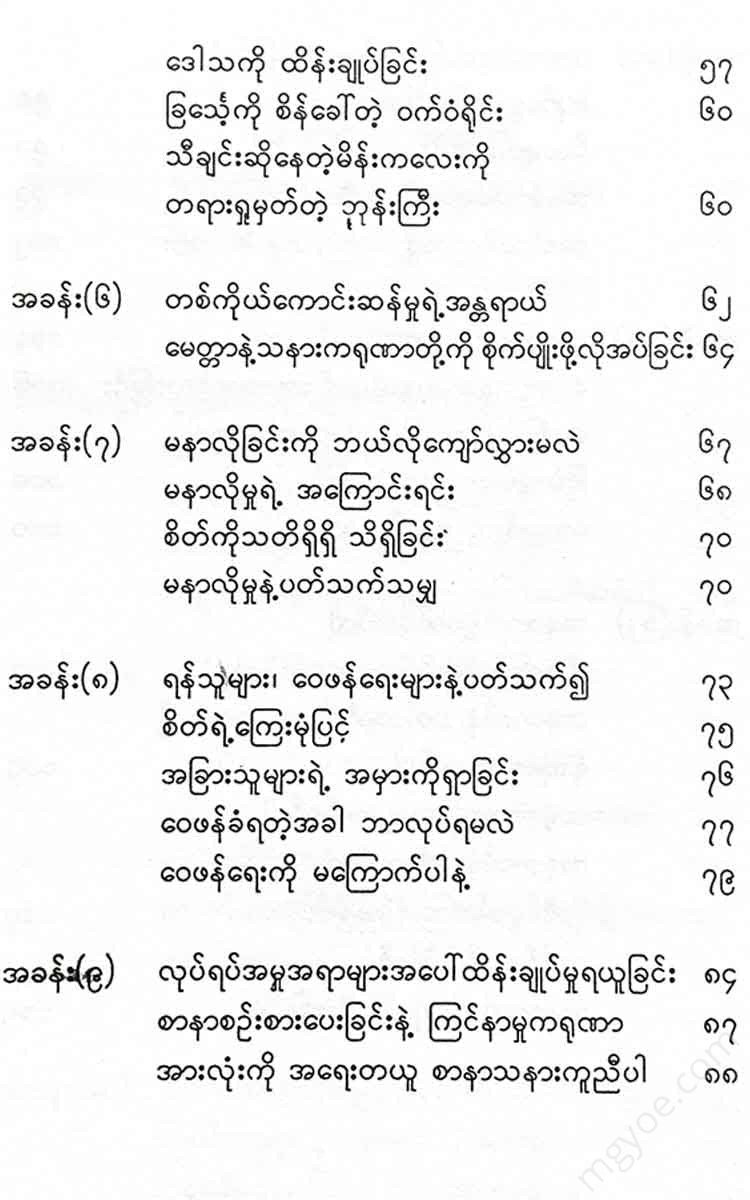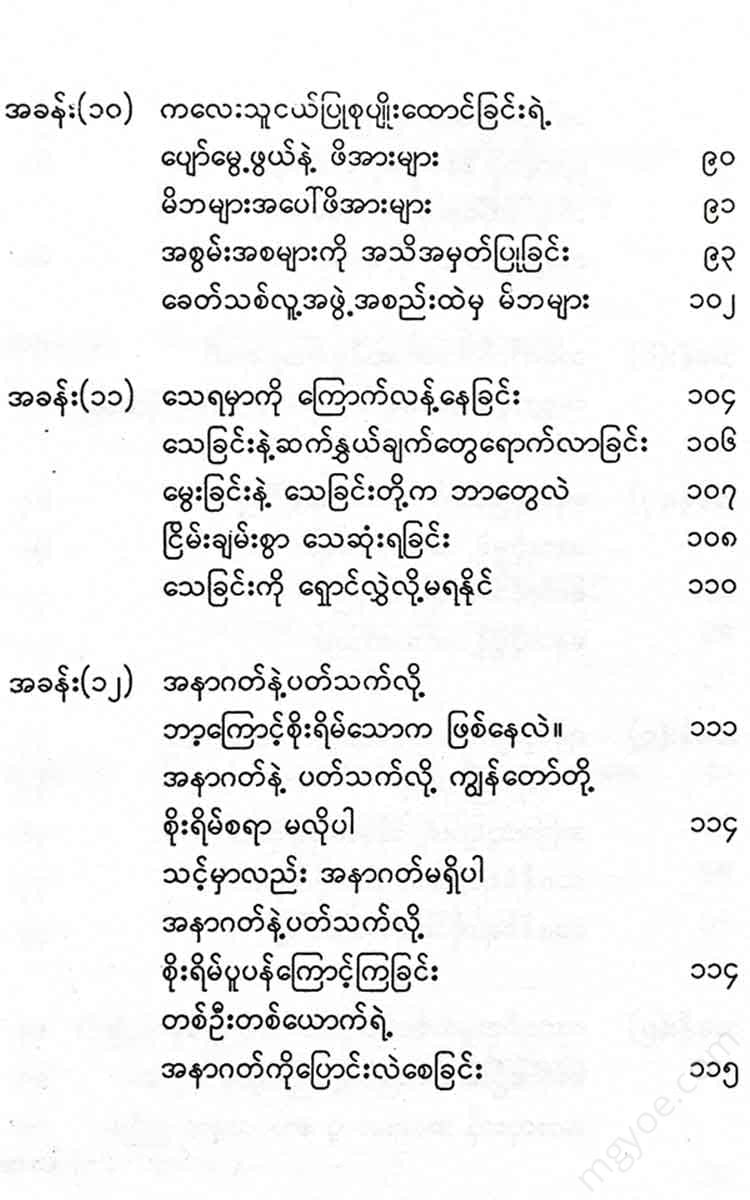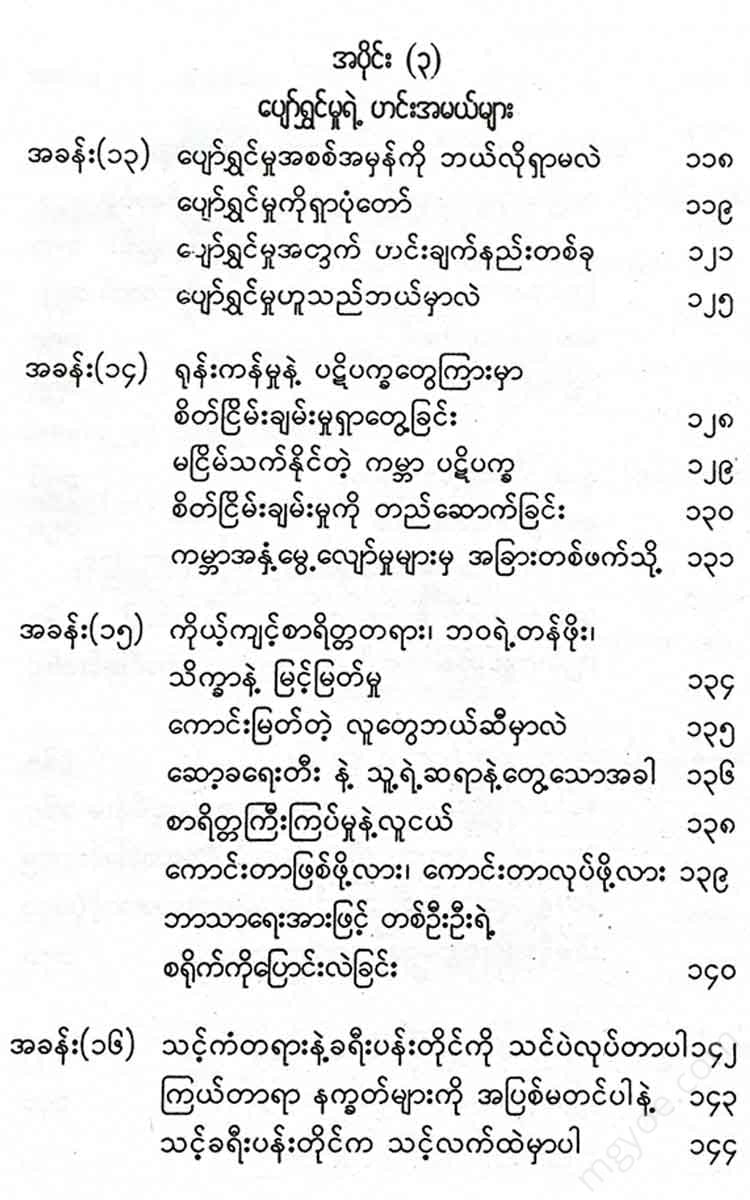စိတ်ကူးချိုချိုစာပေ
Good luck - why are you so worried?
Good luck - why are you so worried?
Couldn't load pickup availability
Chapter 1
Fear and anxiety
“We have to pay a price for fear and anxiety in order to live as humans. Our dependence on anxiety is the foundation of our problems and the source of all suffering.”
Fear and anxiety seem to be a part and parcel of human life. He who is unable to escape from this dirty world and is trapped in it, cannot escape from any satisfactory state of mind.
Why do people worry? What are they worried about? Their worries are caused by feelings of guilt and responsibility, and these can take many forms. For example, they may have strong feelings of inferiority. They may compare themselves to others and think, “Maybe I’m not doing well enough.” Or, “Maybe I’m not as good as I should be in this confrontation.” They may be afraid to act naturally in front of others. They may think, “I don’t dare show my face in front of them. If I do, I’ll look inferior and lose their trust.” As a result, they tend to act according to other people’s wishes instead of their own. This creates a friction between their inner and outer selves, which leads to suffering.
People are worried about everything, almost everywhere.
There are many things that are based on their physical appearance. Men are afraid of being bald, women are afraid of having wrinkles, too thin, too fat, too dark, too white, too tall, too short, and so on.
They are afraid of being criticized, they are afraid of being attacked by those who are above them. They do not dare to express their ideas and thoughts in public. If someone else dares to express these ideas and thoughts and gets a good name, they will be angry with themselves and will not stop.
They are also worried about their families. They often worry, “What if I am not a good father, a good mother, a good son?” They are often angry when their beautiful young wife goes out with another man. Wives are also angry when they see their husbands flirting with other girls. An unmarried man is a housewife.
Worried about what to do, worried about not being able to have children after marriage, worried about how to raise children when they do. “What if my wife, my husband, leaves me because they don’t love me anymore and get bored?” is a common fear that every married person experiences. Some parents are unnecessarily concerned about the safety of their children. The same goes for home safety and health.
They face the challenges of handling their responsibilities at work, and the difficulties of making decisions. Should I get promoted? Should I be the one to take on more responsibilities? Will my colleagues be jealous? Will I be the one to blame? There are so many issues to consider.
The cause of anxiety
One of the most dangerous and unhealthy mental states is prolonged anxiety. There is only one answer. Anxiety is caused by the idea of “me,” “mine,” etc. This is called the ego, according to Buddhism. When people first consider the nature of existence, they think that a person is made up of two parts: body and mind. Both are eternal and real, and from here they rise to the great false idea of the eternal self, “I.” The rise from “me” to “me,” “mine,” etc. leads to the rise of hunger, selfishness, deceit, and unworthy thoughts. This ego is the root cause of all problems. From personal conflicts to wars between nations, it is because of this “ego.”
The misconception that there must be an eternal physical body to be satisfied comes with this rise of ego. It leads to extremes in satisfying the insatiable cravings of the physical body. The fear of not being able to fully satisfy one's desires and needs only makes one anxious and worried.
Anxiety is nothing more than a negative state of mind. The stronger your attachment to something, the greater your fear of losing it.
Similarly, we are afraid of getting something we don't want, both of which only increase anxiety.
For a person who has trained his mind to recognize the true nature and characteristics of life, these sufferings can be overcome.
In an uncertain world, the only certainty is that everything will end eventually. The law of change is “immortality.” You will die according to the law of mortality. The world will continue to go on as it is. What is the use of worrying so much? If you think about it and fear, it will only harm your health. You should retire early before your life is over. Instead of healing the heartache of being rejected by your lover, you spend your time dwelling on it. Some people even find a way out of this burning pain by violent means.
Fear and superstition
The list of people who suffer from anxiety is endless, and our problems are not just anxiety. Fear is also anxiety's twin. It is a stream from the dark corners of the mind.
Constant anxiety and fear characterize human existence. Fear that arises from insecurity is fear of the enemy, fear of hunger, fear of illness, fear of losing possessions and positions, fear of old age and death, and fear of not knowing what the afterlife will be like.
In addition to worrying about things going wrong, there is also the worry that everything is going well. Some people think that the absence of news is good news, but when there is no news, they worry again. These undiscovered worries, inappropriate worries
Their lives are filled with fear. Only those who can keep their minds pure and whole are free from this situation.
Another type of fear is the fear of unknown and uncontrollable forces of nature. We have been practicing self-defense against wild animals and savages for thousands of years. During this long period of slavery to nature, when we have tried to understand the workings of these forces, the seeds of superstition have been planted. These superstitions have been passed down from generation to generation, rooted in ignorance and fear, and have continued to this day.
Psychologist John Broaddus Wiggins said, “Fear is one of the three emotional responses that have never been studied. The others are love and anger.” His theory is that a newborn baby cries out in response to the sudden loss of support.
Even a newborn baby is believed to deserve the assurance of love and affection.
The difference between a small, ordinary wild animal and a large predator creates fear, just as the predator
Even giants, when faced with natural forces such as rain, wind, thunderstorms, earthquakes, and volcanic eruptions, struggle with fear to protect themselves from these dangers. After competing with nature in this way, humans have used their innate ability, their cunning, as a powerful ally. In ancient times, humans used worship and prayer as a traditional means of solace. Good forces became “gods” to be worshipped, while unfamiliar forces became evil spirits to be avoided.
Fear also originates from superstitious beliefs. The followers, who have become aware of the displeasure of the “Creator,” have developed religions that rely on the idea of a God who will make everything perfect. The foundations of some religions are born of ignorance.
It is a form of worship based on fear. The fear created by religions is the worst form of fear, since it imprisons the mind. It is only through superstition that fear is cultivated and taught, under the fog of ignorance and misunderstanding, that fear flourishes.
In this world where problems never seem to be solved, people are constantly anxious about the safety of themselves and their loved ones. One problem is solved, and then another arises. It's like a child building a sandcastle on the beach, afraid of the waves crashing on it.
Fear of the unknown grew into religion early on, and the belief that only a supernatural "God" could explain the universe and control everything began to grow. Later, science, which revealed as much of the secrets of nature as it could, led to the emergence of modern humans.
The superstitions of the past are still a legacy. We have not been able to free ourselves from these superstitions. We are still weak because they enslave our minds. Not only among the ignorant, but also among the educated, these fears and superstitions have led to the spread of strange and strange diseases. Fear of the dark, fear of closed places, fear of open spaces.
There are many types of phobias, including fear of heights, fear of animals, fear of ghosts, fear of thieves, fear of enemies, and fear of someone lurking behind you who you can't see and killing you.
There is a saying that Buddha said to those who believe in superstition: “Wherever fear rises, it rises only in the foolish, not in the wise.”
What does anxiety do to us?
“When envy, hatred and fear become habits, those people become susceptible to diseases,” says Dr. Alexis Carroll. Medical science says that the increasing incidence of diabetes, hypertension, asthma, stomach and skin diseases is due to anxiety and depression. Thinking only about what you want in life makes the organs of the body work harder. Businessmen do not know how to deal with the fact that people often die young due to anxiety and stress.
Many people have experienced that poor physical and mental health are caused by anxiety. Anxiety causes the blood to dry up faster than it should. Worrying does not solve problems, but it makes them worse, and it leads to physical and mental damage. In addition, if a person is constantly worried, not only will he not be healthy at home, but he will also be uncomfortable in the office and in society.
In addition to anxiety, fear can also be harmful, and constant fear can keep a person's mind constantly tense and lead to a state of depression.
Fear is a constant threat to life and a demoralizing force. Fear is also a negative force that darkens the future.
Fear is a natural reaction to unexpected situations and events, and it can lead to panic and heartbreak. While a certain amount of fear is considered normal, if it is allowed to grow unchecked, this fear can become so intense that it can become a panic attack. Panic attacks can have disastrous consequences not only for the individual but also for those around them. Learning how the mind works can help prevent this from happening.
"I am not affected by my wife's death."
This is what the great Chinese thinker, "Chuang Tzu, said when his wife died. When his wife died, he was playing drums and singing outside the tent. When his friend saw this, he was shocked and asked why he was not affected. "Chuang Tzu" replied:
"I have truly accepted her fate, now that she is free from the pains of life's work. She has already entered another transformation."


